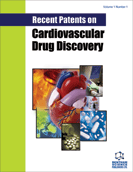Abstract
Chronic Angina resistant to medical treatment with hemodynamically acting agents is a major problem in clinical setup. For such patients, large number of clinical trials have documented the beneficial effect of Ranolazine. It acts as an anti-anginal agent that controls myocardial ischemia through intracellular metabolic changes. Ranolazine is a partial fatty acid oxidation inhibitor which shifts cardiac energy metabolism from fatty acid oxidation to glucose oxidation. Since the oxidation of glucose requires less oxygen than the oxidation of fatty acids, ranolazine can help maintain myocardial function in times of ischemia. In addition, ranolazine has minimal effect on blood pressure and heart rate. Ranolazine, by inhibiting cellular ionic channels, prolongs the corrected QT interval. However, ranolazine has not yet been associated with any incidences of ventricular arrhythmia. Other possible mechanism by which Ranolazine could act is by reducing the formation of reactive oxygen species (ROS) and improves reperfusion mechanical function. Ranolazine has been approved by US FDA for the treatment of chronic angina pectoris in combination with amlodipine, β-blockers or nitrates in patients who do not show adequate response to other anti-anginals. Ranolazine is a metabolic modulator that is being developed by CV Therapeutics (CVT), under license from Roche (formerly Syntex), as a potential treatment for angina. Ranolazine is available as brand name ‘Ranexa’ as extended release oral tablets. This review focuses on the clinical effects, the mechanism of actions, drug interactions and beneficial effects of Ranolazine in chronic angina and other cardiometabolic disorders.
Keywords: Chronic angina, fatty acid oxidation inhibitor, reactive oxygen species, myocardial ischemia
 25
25


